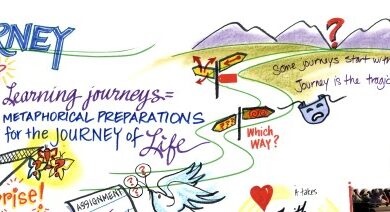
How to choose the right degree is a crucial decision, shaping your future career and personal growth. This guide dives deep into the process, from understanding your interests and skills to researching degrees, evaluating institutions, and making informed financial decisions. It’s not just about finding a degree; it’s about aligning your passions with a fulfilling and profitable career path.
We’ll explore various career options, examining the required qualifications and educational paths. We’ll also delve into the different types of degrees, comparing their curriculums, durations, and costs. Finally, we’ll discuss crucial financial considerations and how to develop a personalized plan of action.
Understanding Your Interests and Skills
Choosing the right degree is a crucial step in shaping your future career. It’s not just about finding a program that sounds interesting; it’s about aligning your passions, skills, and aspirations with a field that will provide fulfillment and opportunity. This requires a deep dive into your personal landscape – understanding what truly excites you and what you excel at.Understanding your interests and skills is the cornerstone of making an informed decision.
This process involves self-reflection, honest assessment, and a strategic approach to exploring potential career paths. It’s a journey of discovery, not a race to a pre-determined destination.
Identifying Personal Interests
Understanding your interests is about uncovering what truly captivates you. It’s not about fleeting passions, but about sustained curiosity and a genuine desire to learn more. Consider activities you enjoy, topics that hold your attention, and problems you find stimulating. Think about the reasons why you enjoy these activities. Are they related to a specific field or skillset?
What aspects of these activities bring you the most joy?
Assessing Current Skills and Abilities
Identifying your existing skills is just as important as uncovering your interests. This involves a comprehensive evaluation of your strengths, weaknesses, and areas for growth. Look at past experiences, both academic and extracurricular. What have you excelled at? Where have you faced challenges?
What skills have you developed through hobbies or projects? Consider taking personality assessments, skills inventories, or career aptitude tests to gain further insights. These tools can provide a structured approach to understanding your natural inclinations and proclivities.
Comparing Career Paths and Skills
This table provides a simplified overview of potential career paths and the corresponding skills often associated with them. Remember, these are general guidelines, and individual requirements may vary.
Choosing the right degree is a big decision, and it’s crucial to consider your interests and career goals. Thinking about future tech advancements like IPv6’s successful global test, detailed in this fascinating article ipv6 passes world test with flying colors , can help you see how technology is evolving. Ultimately, research different programs, talk to professionals in the field, and pick a degree that genuinely excites you and aligns with your aspirations.
| Career Path | Key Skills |
|---|---|
| Software Engineer | Problem-solving, critical thinking, programming languages (e.g., Python, Java), analytical skills |
| Marketing Specialist | Communication, creativity, social media management, data analysis, market research |
| Nurse | Empathy, compassion, patient care, communication, problem-solving, medical knowledge |
| Teacher | Communication, patience, empathy, organizational skills, subject matter expertise, classroom management |
| Financial Analyst | Analytical skills, financial modeling, data interpretation, communication, problem-solving |
Questions to Determine Suitable Career Paths
Asking yourself the right questions can unlock hidden insights about your future career.
- What activities consistently energize and excite you?
- What tasks do you find yourself naturally drawn to and excel at?
- What are your strengths and weaknesses, both in academic and practical contexts?
- What industries or fields hold a particular fascination for you, and why?
- What kind of work environment do you thrive in (e.g., fast-paced, collaborative, independent)?
- What are the potential challenges and rewards associated with various career paths?
The Importance of Self-Reflection
Self-reflection is the key to unlocking your true potential. It’s about taking time to understand your values, motivations, and aspirations. By honestly assessing your interests, skills, and career goals, you’ll be better equipped to choose a degree that aligns with your unique journey. A degree is not just a piece of paper; it’s a stepping stone towards a fulfilling career.
Thorough self-reflection allows you to make a decision that is both aligned with your personality and likely to lead to long-term success.
Exploring Career Options
Once you’ve understood your interests and skills, the next crucial step is to explore the diverse world of career options. This involves researching various industries, identifying potential job roles, and comparing different career paths based on your personal preferences. A well-informed decision requires careful consideration of the qualifications needed for each path and the potential long-term fulfillment it offers.
Understanding the specific requirements of different careers allows you to tailor your education and training accordingly. This proactive approach increases your chances of securing a fulfilling and successful career trajectory. A clear understanding of the industry landscape and the various roles within it is key to making an informed decision about your future.
Different Career Paths and Their Qualifications
A wide range of career paths exists, each with unique requirements and opportunities. The field of medicine, for example, demands rigorous education and training, while a career in graphic design often emphasizes creativity and technical skills. Exploring these differences helps you align your aspirations with realistic expectations.
Industries and Potential Job Roles
Many industries offer diverse job roles. The technology sector, for instance, encompasses software development, cybersecurity, data analysis, and more. The hospitality industry provides opportunities in restaurant management, hotel operations, and event planning. Understanding these roles within different industries helps you determine which sector aligns with your interests and skills.
- Technology Industry: Roles include software engineers, data scientists, cybersecurity analysts, and UX/UI designers. These roles typically require advanced degrees in computer science or related fields, coupled with practical experience and specialized certifications.
- Healthcare Industry: This sector encompasses various roles such as doctors, nurses, physical therapists, and medical technicians. These roles require extensive education, including medical degrees and specialized training programs.
- Finance Industry: Roles such as financial analysts, investment bankers, and portfolio managers are prevalent. These positions often demand advanced degrees in finance or economics and considerable experience.
Comparing and Contrasting Career Options
Careful comparison of different career options is essential. Consider factors like required skills, industry trends, and potential earning potential. A career in renewable energy, for example, aligns with environmental concerns and offers a growing job market, while a career in traditional manufacturing might offer stability but less growth potential in the near future.
Matching your interests with specific career options is crucial. If you enjoy problem-solving and working with complex data, a career in data science might be a good fit. Conversely, if you prefer creative expression and design, a career in graphic design or architecture could be more suitable.
Educational Requirements for Diverse Careers
| Career | Typical Educational Requirements |
|---|---|
| Software Engineer | Bachelor’s degree in Computer Science or a related field, often with a Master’s degree for more specialized roles. |
| Doctor | MD or DO degree, followed by residency and fellowships. |
| Financial Analyst | Bachelor’s degree in Finance, Economics, or a related field, often with an MBA for senior roles. |
| Registered Nurse | Associate’s or Bachelor’s degree in Nursing, along with state licensure. |
| Graphic Designer | Bachelor’s degree in Graphic Design or a related field, supplemented by portfolio development and professional certifications. |
Resources for Researching Potential Careers
Numerous resources can help you research potential careers. These include online career portals, industry-specific websites, and professional organizations. Networking with professionals in your desired field can provide valuable insights into the realities of different career paths.
Choosing the right degree is a big decision, and it’s crucial to do your research. Talking to current students or professionals in the field is invaluable, and asking the right questions can really help you narrow down your options. For example, probing questions like those in “best one on one questions” best one on one questions can give you insights into potential career paths and the realities of the field.
Ultimately, your decision should be informed and align with your interests and future goals.
- Online Career Portals: Sites like LinkedIn, Indeed, and Glassdoor provide comprehensive information on various job roles and salary expectations.
- Industry-Specific Websites: Medical schools, technology companies, or law firms offer insights into career opportunities within their specific fields.
- Professional Organizations: Membership in relevant professional organizations allows you to connect with professionals, attend industry events, and access valuable resources.
Researching Degrees
Choosing the right degree is a crucial step in your educational journey. It’s not just about selecting a course; it’s about aligning your aspirations with the right learning path. Understanding the different types of degrees, their curriculum, and potential career paths will help you make an informed decision.Thorough research into degree programs is essential for a successful future.
This includes examining the specific learning outcomes, the duration of the program, and the associated costs. By understanding these factors, you can make a well-informed choice that best suits your goals and resources.
Types of Degrees
Various degree types cater to different educational needs and career aspirations. Understanding the distinctions between bachelor’s, master’s, and doctoral degrees is vital for navigating your educational choices. Bachelor’s degrees are typically the first formal academic degree, providing a foundational understanding of a specific field. Master’s degrees build upon this foundation, deepening knowledge and specialized skills. Doctoral degrees, the highest academic degree, are typically pursued for research and advanced study in a specific field.
Degree Program Curriculum and Learning Outcomes
Different degree programs have distinct curricula and learning outcomes. The curriculum Artikels the specific courses and subjects covered within the program. Learning outcomes, on the other hand, detail the knowledge, skills, and abilities that students will acquire upon completing the program. For instance, a computer science bachelor’s program might include courses in programming languages, data structures, and algorithms, aiming for graduates to be proficient in software development.
Degree Specializations and Career Paths
The table below illustrates the diverse specializations within various degree programs and their corresponding career paths. It helps in understanding the potential employment opportunities related to each specialization.
| Degree Program | Specialization | Potential Career Paths |
|---|---|---|
| Bachelor of Science in Biology | Molecular Biology | Research Scientist, Biotechnologist, Lab Technician |
| Master of Business Administration (MBA) | Finance | Financial Analyst, Investment Banker, Portfolio Manager |
| Doctor of Philosophy (PhD) in Physics | Astrophysics | Research Professor, Astrophysicist, Astronomer |
| Bachelor of Arts in English | Creative Writing | Writer, Editor, Journalist, Content Creator |
Duration and Costs of Degrees
The duration and associated costs of degrees vary considerably. Bachelor’s degrees typically take four years, while master’s degrees can range from one to two years. Doctoral degrees often span several years, depending on the field and the individual’s progress. Tuition fees, living expenses, and potential research funding all contribute to the overall cost.
Factors to Consider When Choosing a Degree Program
Several factors should be considered when selecting a specific degree program. These include alignment with personal interests and skills, anticipated career prospects, financial feasibility, and the reputation of the institution offering the program. Consider factors like potential salary ranges and job market demand in the field. Weighing the potential long-term impact of your educational choice is critical.
Evaluating Educational Institutions
Choosing the right university is a crucial step in achieving your academic and career goals. Beyond the initial interest and skill assessments, and exploration of career options, you need to delve deeper into the specifics of potential institutions. This involves evaluating the reputation, faculty, facilities, location, and the structure of the program itself.
University Reputation and Accreditation
University reputation is a powerful indicator of quality. Established institutions often boast strong alumni networks and a proven track record of academic excellence. Accreditation is another critical factor. Accredited universities adhere to rigorous standards, ensuring the quality of their programs and the credibility of their degrees. A degree from an accredited institution holds greater weight in the job market and can open doors to further educational opportunities.
This is essential for validating the academic rigor and quality of the educational experience. Consider institutions with a history of producing successful graduates in your desired field.
Evaluating Faculty and Research Facilities
The quality of faculty directly impacts the learning experience. Look for professors with significant experience, expertise in your area of interest, and a proven record of publication and research. Review their published work, research areas, and teaching evaluations. Visiting university websites, reviewing online profiles, and checking for faculty expertise in specific areas of interest are valuable strategies.
Robust research facilities are crucial for hands-on learning and opportunities for research experience. These facilities can enhance your understanding of theoretical concepts and equip you with practical skills applicable in future careers.
Comparing Universities
A comparative analysis of different universities can help you make an informed decision. Consider factors such as program curriculum, faculty expertise, research opportunities, and the overall academic environment. A table illustrating this can provide a clear overview.
| University | Program Strengths | Research Focus | Faculty Expertise | Location Advantages |
|---|---|---|---|---|
| University A | Strong undergraduate program in engineering | Renewable energy technologies | Experienced professors in design and manufacturing | Proximity to industry hubs |
| University B | Excellent graduate program in business | Financial modeling and analysis | Faculty with extensive experience in global markets | Access to renowned business schools |
| University C | Interdisciplinary arts and sciences program | Human behavior and social issues | Diverse faculty with strong publication records | Vibrant cultural scene |
Note: This is a simplified example. Consider researching specific programs and faculty within each university to get a more comprehensive understanding.
Location and Campus Environment
The location and campus environment play a significant role in the overall student experience. Consider factors such as proximity to job opportunities, cultural attractions, and the overall atmosphere of the campus. A vibrant campus environment can foster a supportive and engaging learning atmosphere, encouraging collaboration and innovation. Think about the city’s amenities and how they might complement your educational experience.
A city with a strong job market in your field of interest could provide networking and internship opportunities.
Online vs. Traditional Degree Programs
Online programs offer flexibility and accessibility, allowing you to study from anywhere with an internet connection. Traditional programs provide a more structured environment, opportunities for in-person networking, and direct interaction with faculty. Online programs may have lower tuition costs, while traditional programs often have access to better campus facilities and resources. The best choice depends on your individual needs and circumstances.
For example, working professionals may find online programs more convenient, while students seeking a more immersive campus experience may prefer traditional programs.
Financial Considerations

Choosing the right degree isn’t just about passion and skills; it’s also about the financial realities. Understanding the costs involved and available funding options is crucial for making an informed decision. A well-planned budget for educational expenses can help you manage your finances effectively throughout your studies and beyond.
Deciding on the perfect degree can feel overwhelming, right? One crucial factor to consider is whether a traditional degree path is the best fit for you. Sometimes, an alternative like an apprenticeship might be a fantastic option. Learning practical skills through an apprenticeship, like what is an apprenticeship , can be just as valuable and even lead to a quicker entry into the workforce.
Ultimately, the best way to choose the right degree is to thoroughly research your options and think about what you truly want from your future career.
Tuition and Fees
Tuition fees vary significantly depending on the institution, program, and even your residency status. Private universities generally charge higher tuition than public institutions. Beyond tuition, additional fees like laboratory, library, and student activity fees can add up. It’s essential to check the detailed fee structure for each institution to get a comprehensive understanding of the total cost.
Different programs within the same institution may also have varying fee structures.
Living Expenses
Living expenses are another critical factor to consider. These expenses can vary greatly depending on your location. Cost of accommodation, food, transportation, and personal expenses all contribute to the overall financial burden. Students living on campus often face different living expenses compared to those living off-campus.
Funding Options for Students
Various funding options are available to ease the financial burden of pursuing higher education. These options range from need-based financial aid to merit-based scholarships.
Scholarships and Grants
Scholarships and grants are merit- or need-based financial aids that do not need to be repaid. Scholarships are often awarded based on academic achievement, extracurricular activities, or specific fields of study. Grants, on the other hand, may be awarded based on financial need. Researching available scholarships and grants relevant to your field of study can significantly reduce the financial burden of education.
Student Loans
Student loans are another funding source, but unlike scholarships and grants, they need to be repaid. Federal and private student loans offer different interest rates and repayment plans. Understanding the terms and conditions of student loans is crucial before taking them. The interest rate and repayment period can significantly affect your long-term financial situation.
Financial Aid Opportunities
| Financial Aid Opportunity | Description | Application Procedure |
|---|---|---|
| Federal Grants | Need-based financial aid from the federal government | Complete the FAFSA (Free Application for Federal Student Aid) |
| State Grants | Need-based financial aid from state governments | Complete the state-specific application forms |
| Scholarships | Merit-based or need-based financial aid from organizations or institutions | Apply directly to the scholarship provider, often through online portals |
| Private Loans | Financial aid from private lenders | Apply through individual lenders, often with specific requirements |
Long-Term Financial Implications, How to choose the right degree
The choice of a degree can have long-term financial implications. A degree in a high-demand field often leads to higher earning potential compared to a degree in a less-demanding field. The career prospects and salary expectations associated with a degree are factors to consider when making a decision. Researching the job market and potential salary ranges for graduates with different degrees can help you assess the long-term financial impact.
Budgeting for Educational Expenses
Creating a budget for educational expenses is essential to manage your finances effectively. A detailed budget should include tuition fees, living expenses, and any other relevant costs. Tracking your expenses and sticking to your budget can help you avoid unnecessary debt and financial stress. Developing a budget early in your educational planning process can contribute to more manageable financial decisions throughout your studies.
Making an Informed Decision: How To Choose The Right Degree
Choosing the right degree is a significant step, and a well-thought-out approach is crucial for success. It’s not just about picking a program; it’s about aligning your aspirations with the realities of the chosen field and your personal circumstances. This involves a careful evaluation of all aspects, from your interests and skills to financial considerations and potential career paths.
A thoughtful decision-making process is essential for maximizing your chances of achieving your goals.Weighing all factors involves a structured approach, not just a gut feeling. It necessitates a comprehensive analysis of your personal situation, professional aspirations, and the practical implications of each degree option. This is not a quick process; it’s a journey of self-discovery and careful consideration.
Weighing Factors
A well-structured decision-making process involves considering various factors. These factors include your personal interests and skills, the potential career paths associated with different degrees, the financial implications, and the reputation of the educational institutions offering those degrees. Carefully assessing each factor allows for a more balanced and informed decision.
Creating a Personalized Decision-Making Framework
Developing a personalized framework for your decision is essential. This framework should be tailored to your individual circumstances and goals. Begin by listing all potential degree options. Next, evaluate each option based on your interests, skills, and career aspirations. Quantify and prioritize factors like potential salary, job market demand, and personal fulfillment.
Consider the long-term implications and potential risks and rewards associated with each choice. This systematic approach ensures a well-reasoned and informed decision.
Checklist for Reviewing Options
A checklist helps ensure thorough consideration of all relevant factors.
- Interest Alignment: Does the degree align with your genuine interests and passions? Consider how much you enjoy the subject matter and if it sparks your curiosity.
- Skill Assessment: Do you possess the necessary skills and aptitudes for the chosen field? Identify your strengths and weaknesses and assess if they align with the requirements of the degree.
- Career Outlook: Research the potential career paths associated with the degree. Analyze job market trends and potential salary expectations. Consider whether the degree provides adequate preparation for the job market.
- Financial Viability: Assess the total cost of the degree, including tuition, fees, and living expenses. Evaluate your financial resources and explore potential funding options. Compare the potential return on investment (ROI) for each option.
- Institution Reputation: Research the reputation of the institutions offering the degree. Consider their academic rigor, faculty expertise, and alumni network. This can greatly impact future career opportunities.
Seeking Mentorship and Advice
Seeking guidance from mentors or professionals is a valuable step. Experienced individuals in the field can offer insights and perspectives based on their own experiences. Their advice can be invaluable in navigating the complexities of degree selection and career planning. They can provide realistic assessments of the job market and potential career paths, offering crucial guidance.
Considering Potential Risks and Rewards
Every decision carries inherent risks and rewards. Analyzing potential risks and rewards associated with each option is critical. For instance, a specialized degree might offer higher earning potential but with a more limited job market. A broader degree might offer more career flexibility but with potentially lower starting salaries. Understanding these trade-offs allows for a more informed decision, acknowledging the potential outcomes.
Consider potential challenges and how to mitigate them.
Developing a Plan of Action

Choosing the right degree is a significant step, but without a well-structured plan, achieving your academic goals can feel overwhelming. A personalized plan provides a roadmap, helping you stay organized, motivated, and on track to graduate successfully. This section focuses on crafting a detailed action plan that aligns with your unique circumstances and aspirations.A comprehensive plan of action for a degree program is crucial for success.
It serves as a guide, ensuring you allocate time effectively, prioritize tasks, and stay motivated throughout your academic journey. This structured approach helps you avoid procrastination and manage the various demands of coursework, research, and extracurricular activities.
Creating a Personalized Study Plan
A personalized study plan is a tailored schedule that accounts for your learning style, preferred study methods, and personal commitments. This customized approach allows for maximum flexibility and efficiency. It’s not a rigid framework but a dynamic tool to be adjusted as your needs evolve.
- Define clear and measurable goals. This includes specific course objectives, desired grades, and potential career aspirations. For instance, aiming for a 3.5 GPA in your chosen major and completing a research project during your junior year are tangible examples of specific goals.
- Break down large tasks into smaller, manageable steps. Instead of focusing on the entire semester’s workload, concentrate on weekly or even daily tasks. This approach reduces the feeling of being overwhelmed and makes the degree program feel more attainable.
- Allocate dedicated study time. Establish specific hours for studying, much like you would schedule appointments or meetings. Consistency is key. This dedicated time prevents study sessions from becoming haphazard or less effective.
- Incorporate breaks and relaxation. A balanced schedule incorporates breaks and downtime. This prevents burnout and ensures your mental well-being. Regular breaks and rest are essential for optimal learning and focus.
Effective Study Strategies
Different learning styles necessitate different study strategies. Understanding your preferred learning style allows for the adoption of methods that optimize your comprehension and retention.
- Active recall techniques, such as flashcards and practice quizzes, are effective for memorization and retention. By actively retrieving information, you strengthen your memory and understanding.
- Spaced repetition systems are excellent for long-term retention. Reviewing material at increasing intervals reinforces learning over time. This method is highly effective for complex concepts.
- Visual aids, like mind maps and diagrams, can aid in visualizing complex information and understanding relationships between different concepts. This approach can be very helpful in subjects like history or mathematics.
Timeline for Degree Completion
A timeline provides a clear view of your progress and helps you stay on track. It’s essential for managing your workload and meeting deadlines.
| Semester | Courses | Activities | Timeline |
|---|---|---|---|
| 1 | Intro to [Major], Math 101 | Orientation, campus exploration | August-December |
| 2 | [Major] Fundamentals, Science Lab | Join clubs, attend workshops | January-May |
| 3 | Specialization Course 1, elective | Networking events, internships | June-October |
| 4 | Capstone Project, elective | Internship or research | November-April |
Setting Realistic Goals and Expectations
Setting realistic goals is essential to avoid disappointment and maintain motivation. A realistic approach ensures you are prepared to tackle the challenges and enjoy the process of earning your degree.
- Realistic goals consider your current academic standing, work commitments, and personal life. A realistic approach takes these factors into account and sets goals that are achievable given your current circumstances.
- Consider the time commitment required for each course. Account for additional time for study, research, and extracurricular activities. This proactive approach helps you understand the full extent of the time commitment involved in pursuing a degree.
- Be flexible and adaptable. Unexpected events may arise. Having a flexible approach allows for necessary adjustments to your plan without derailing your overall goals. This ensures that your plan remains adaptable to unexpected challenges.
Managing Time and Prioritizing Tasks
Effective time management is vital for success in any academic endeavor. Prioritizing tasks is crucial for optimizing your learning process.
- Use a planner or calendar to schedule tasks and appointments. This proactive approach helps you stay organized and on track.
- Break down large projects into smaller, more manageable tasks. This method makes the overall workload less daunting and allows for progress tracking.
- Learn to say no to commitments that don’t align with your priorities. This crucial step helps you focus on what’s important and avoid feeling overwhelmed.
End of Discussion
Choosing the right degree is a journey of self-discovery and meticulous planning. By carefully considering your interests, skills, career aspirations, and financial realities, you can make a decision that sets you on the path to a successful and fulfilling future. This guide provides a comprehensive framework to navigate this important process, equipping you with the knowledge and tools to make the best choice for you.






